Maynooth University Department of Media Studies
ToggleSian Cowman
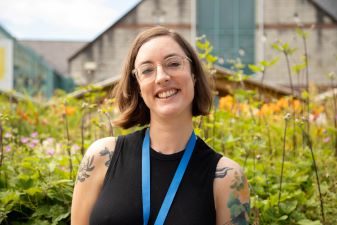
Name: Sian Cowman
Email: [email protected]
Project title: The formation of climate migration: media discourse, political ideology and civic action in the emergence of a ‘future problem’
Supervisor/s: Prof Gavan Titley; Dr Anne O’Brien
Project overview:
In recent years, the category of climate migration has become established in political and media discourse. However, the category is unstable and contested due to the complexity of migration and its multi-causal nature; and reproduction of ‘climate migration’ frequently masks and depoliticises this complexity. This is not solely a conceptual problem with consequences for public knowledge, but a political problem also, as the concept can be instrumentalised to advocate for different interests.
The category is widely reproduced by civil society and media, often articulated to push for climate action. Although it was first expressed as concern for environmental degradation, the framing was closely linked to colonial, racialised ideas of overpopulation causing land degradation and resulting migration in regions such as the Sahel and Bangladesh. A focus on these geographical regions continues today in reproduction of the category, along with a hyperfocus on numerical predictions of movement of people across borders. ‘Climate migration’ is also reproduced by political actors to advocate for border securitisation, framed as a catalyst of potential societal collapse.
This research project examines the framing, interpretation and significance of the category of climate migration in media and political discourse through a mixed-method analysis of how the category is reproduced in professional journalistic output in international media titles. This project is in receipt of a John and Pat Hume Doctoral Fellow Scholarship.
Sian is a freelance climate justice educator and researcher, teaching and publishing in the environmental, community education, and human rights sectors in Ireland. You can find her on LinkedIn: https://www.linkedin.com/in/sian-cowman/ and on Twitter/X and Mastodon @Sian_Cowman
Yekta Kalantar Hormozi
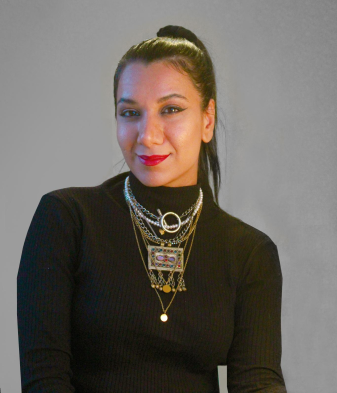
Name: Yekta Kalantar Hormozi
Email: [email protected]
Project title: The CultureCraft Model: A Creative Process Model for Cultural Adaptation in Video Game Design
Supervisor/s: Dr Jeneen Naji and Dr Natalie Culligan
Project overview:
Yekta Kalantar Hormozi's practice-based research introduces the CultureCraft Model, designed to help game designers authentically integrate cultural elements into their games. The novelty lies in its systematic, step-by-step approach, making the process accessible to all designers. Drawing from Rhett Loban's work and R. Lyle Skains's creative practice methodology, the model is developed through game prototyping and data from interviews, game design documents, and case studies.
The research focuses on two main questions: how to navigate authentic cultural adaptation and balance creativity with cultural sensitivity. The CultureCraft Model aims to raise awareness of cultural biases in video games and promote fair representation. It is useful for both AAA companies and indie designers, providing tools to avoid cultural misrepresentation and empowering diverse voices in the gaming industry.
As an open-source model, CultureCraft helps avoid stereotypes, amplifies marginalized voices, and promotes inclusivity in gaming. The model provides a structured framework for game designers to incorporate cultural elements authentically and creatively, leading to richer and more diverse gaming experiences.
Sarah Larkin
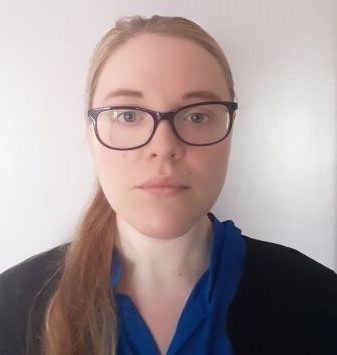
Name: Sarah Elizabeth Larkin
Email: [email protected]
Project title: Constructing Sexual Conservatism in Irish Coming of Age Television Drama.
Supervisor/s: Dr Sarah Arnold and Dr Anne O’ Brien
Project overview:
My project is about the use of heteronormative sexual scripts in Irish coming of age television drama.
For my project, I am analysing the heteronormative sexual scripts found in three popular Irish coming of age series’ Derry Girls, Young Offenders, and Normal People. My main argument is that the sexual scripts present in all three dramas have become the machinations in constructing conservative sexual representations that are neglectful and damaging.
Drawing on theories of representation, sexual scripting, heteronormativity, and postfeminism, this project hopes to draw attention the continued dominance of heteronormative representations in the three prominent Irish series that have popularised coming of age in Ireland.
Literature discussing Irish society’s historically complicated relationship with the sexual and the conservative representations that were constructed in the early days of coming-of-age television in the US and the UK, provide the contextual backdrop that helps put into perspective the use of conservative, heteronormative representations of the sexual in Irish coming of age television drama.
With more visibility when it comes to the array of sexual identities that exist, this project aims to hopefully be another voice in drawing attention to the continued construction of dominant, heteronormative representations.
Eleanor McSherry
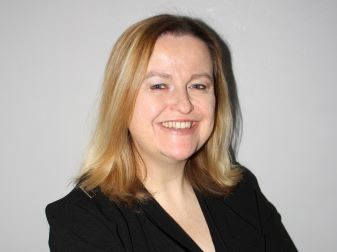
Name: Eleanor McSherry
Email: [email protected]
Project title: Production Analysis of the Representation of Autism in the Television Drama.
Supervisor/s: Dr Anne O’Brien and Dr Sarah Arnold
Project overview:
There has been an exponential rise in the number of autistic characters and stories in television dramas in recent years. While there is research examining the representation of autism on screen, there has been little analysis of the production processes and media culture that create these representations.
This PhD will conduct a Foucauldian Discourse analysis of the production processes that produce these autistic portrayals and will examine examples from the United Kingdom and Ireland to see if they present good or bad depictions on screen, if there are patterns within the production systems that create these shows, and if there are good practices that can be emulated, also can these can be formed into a set of guidelines within a living document for any future television productions that have an autistic character or story within them.
Jonathan O'Brien
Conall Ó Fátharta

Name: Conall Ó Fátharta
Email: [email protected]
Project title: Scandal or Silence: The Irish print media role in investigating and shaping historical Church and State abuse as national ‘scandals’ 1990-2020.
Supervisor/s: Prof Gavan Titley and Dr Stephanie Rains
Project overview:
Exposing human rights abuses is seen as a key democratic role of a functioning press. Since the 1990s, Ireland’s media repeatedly punctured uncomfortable historical silences by exposing multiple ‘scandals’ interlinked by a common thread - the treatment of unmarried women and their children by the Church and State. The resulting high-profile State inquiries emerged from sustained media pressure and the resultant public outrage. While the role of journalism is bringing these issues to light has been widely acknowledged, a media history of these events – now seen as seismic events in Irish social and cultural history – remains to be written. I hope to begin that process by focusing on three interlinked episodes of injustice - abuse in industrial schools (1999-2009), Magdalene Laundries (1993-2018) and forced and illegal adoption (1996-2020).
The media brings social and political issues to light using very specific methods and news frames. It sets the public agenda by deciding what news society consumes and in what form. It decides what and, crucially, when any socio-political issue becomes a ‘scandal’. Scandal is one of the most powerful yet most ambiguous media frames. It serves as a simple shorthand to mobilise public attention to an issue. Yet, in providing a structure for the public to attribute blame, guilt and innocence, complex issues can become simplified, distorted, overstated or, worse, understated. It is also crucial to understanding how Irish journalism engages with complex historical institutionally produced injustices.
This dissertation will trace the evolution in reporting which moved the above interlinked episodes of historical injustice from functional news generating limited coverage to national ‘scandals’. This evolution mirrored wider changes within the industry as newspapers began to broaden their geographic and social agendas to reflect a secularising Ireland. This dissertation will examine this changing Irish journalistic landscape and practices that framed the public narrative around these issues. It is therefore, both a work of media history and media analysis.
This research is funded by the Irish Research Council.
Diaa Lagan
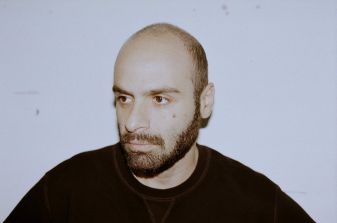
Name: Diaa Lagan
Email: [email protected]
Project title: The Role of Spatial representation, and humanity digitalisation in representing west Asian culture and cartography.
Supervisor/s: Jeneen Naji (MU), Hilary Kenna (IADT)
Project overview:
The research explores the artistic and spatial representation in medieval Islamic cartography, going through counter mapping and juxtaposed with the Western mapping and panorama, which employed linear perspective and visual storytelling to connect landscapes, and territorial narratives. The study further considers the impact of digitalisation on contemporary cartographic practices, focusing on the role of map-based news agencies that utilise Geographic Information Systems (GIS) and interactive platforms to present real-time spatial data. Through historical analysis and case studies of digital mapping technologies, the practice-led research investigates how cultural, philosophical, and technological contexts have shaped these cartographic traditions, along with developing a practical body of work, as virtual reality experience, and mobile application.
This PhD research is co-funded by the Government of Ireland and the European Union through the ERDF Southern, Eastern & Midland Regional Programme 2021-2027.
Caroline Mc Loughlin Quinn
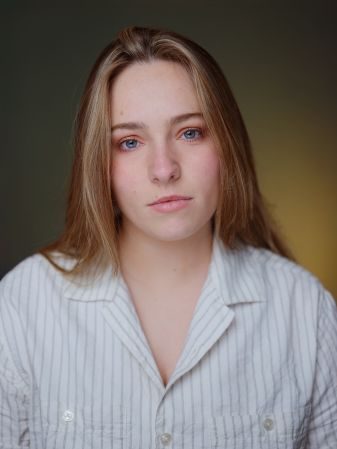
Name: Caroline Mc Loughlin Quinn
Email: [email protected]
Project title: The misrepresentation of foster kids on screen.
Supervisor/s: Prof Anna Hickey Moody
Project overview:
My research explores the representation of foster children in film and television, focusing on how these portrayals shape societal attitudes and self-perception. Foster characters are often framed through a lens of brokenness or trauma, positioned to evoke pity from audiences. This project examines how such narratives rely on reductive stereotypes, and what is lost in the process. It investigates how the repetition of these tropes influences public understanding of foster care and impacts the ways foster youth come to see themselves. Rooted in cultural and media theory, the research interrogates both the visibility and invisibility of foster kids on screen—and the broader implications this has for identity, belonging, and representation in contemporary media culture.
Eilís Nolan
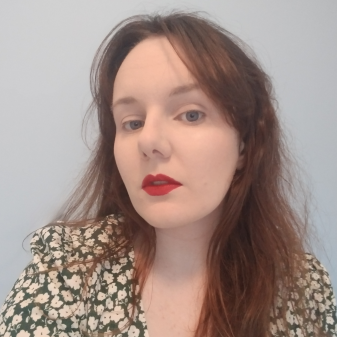
Name: Eilís Nolan
Email: [email protected]
Project title: COVID-19 and Visual Media
Supervisor/s: Dr. El Putnam (Maynooth University) and Dr. Michael Connerty (IADT)
Project overview:
In previous MA research, Eilís Nolan worked to establish a reflexive relationship between societal perceptions and fear of disease, and the representations of it in visual media. How and what visual media is created, and how an audience interacts with it, is often influenced by both intrinsic and socially informed beliefs surrounding disease and its representation.
The COVID-19 global pandemic has brought these hypotheses to the forefront of the cultural zeitgeist, with the pandemic effectively affecting all aspects of visual media production and engagement both during the period in which it was classed as a global crisis and beyond as a cultural trauma. This PhD research breaks these observations down into three primary subject areas; informational and broadcast media, digital culture, and film and television media. The aim of this research is to examine and conduct quantitative analysis on the ways in which COVID-19 affected these specified interdisciplinary areas of visual culture in the aftermath of the international health crisis.
Eilís is an assistant lecturer at Dún Laoghaire Institute Of Art, Design and Technology in Ireland. She gained her MA by Research in 2022 for research entitled “Epidemics and Visual Media: An Examination of the Reflexive Relationship Between Perception of Disease and Visual Culture.” She has presented her interdisciplinary research at conferences including The Irish Screen Studies Seminar in 2023, and The Conference of AG Animation 2024 in Denmark. She will present later this year at The Irish Screen Studies Seminar 2025 in University College Cork and Console-ing Passions in Georgia State University, USA. She also works as a scriptwriter and as a 2D animation professional.
This PhD research is co-funded by the Government of Ireland and the European Union through the ERDF Southern, Eastern & Midland Regional Programme 2021-2027.
